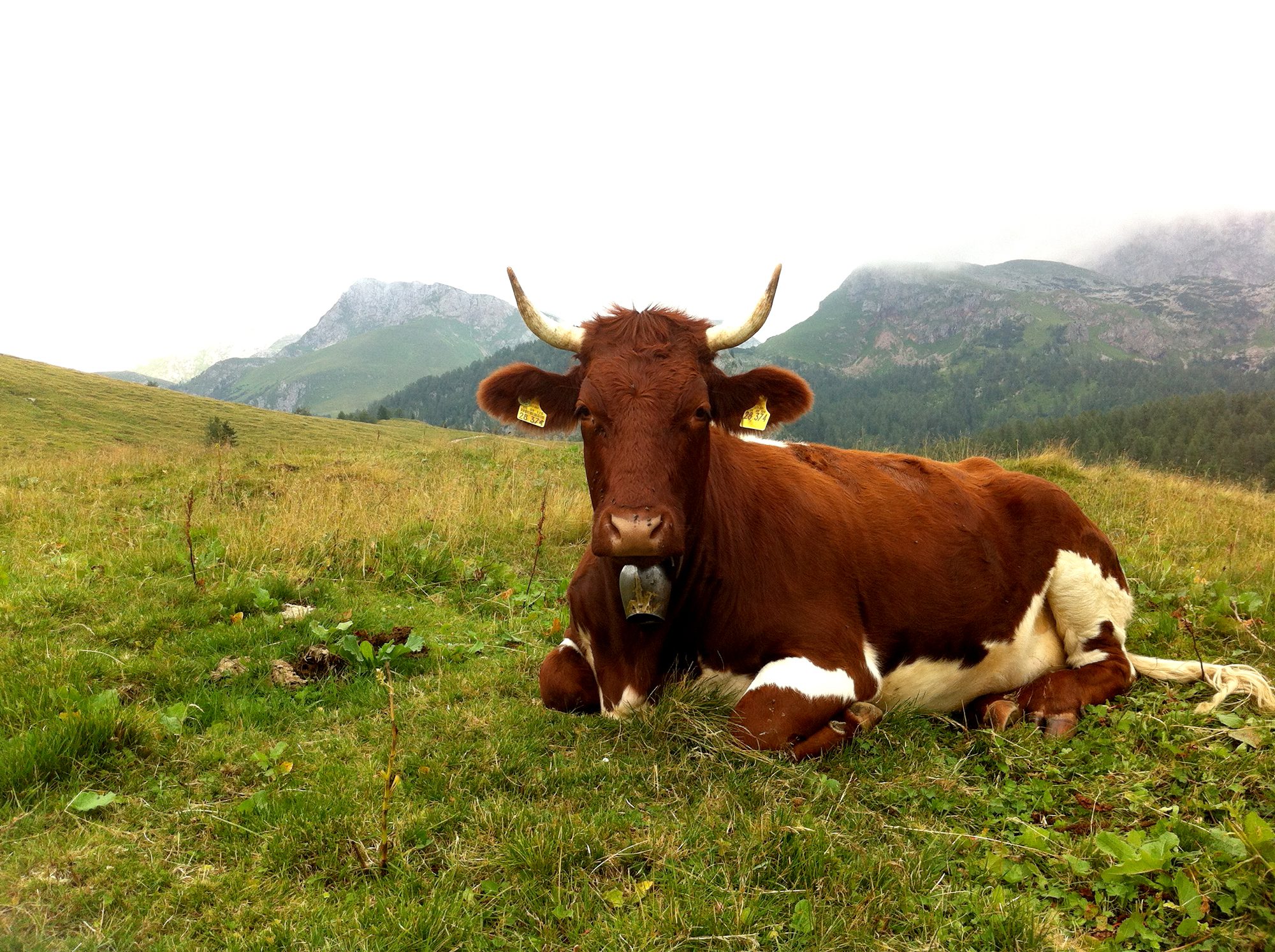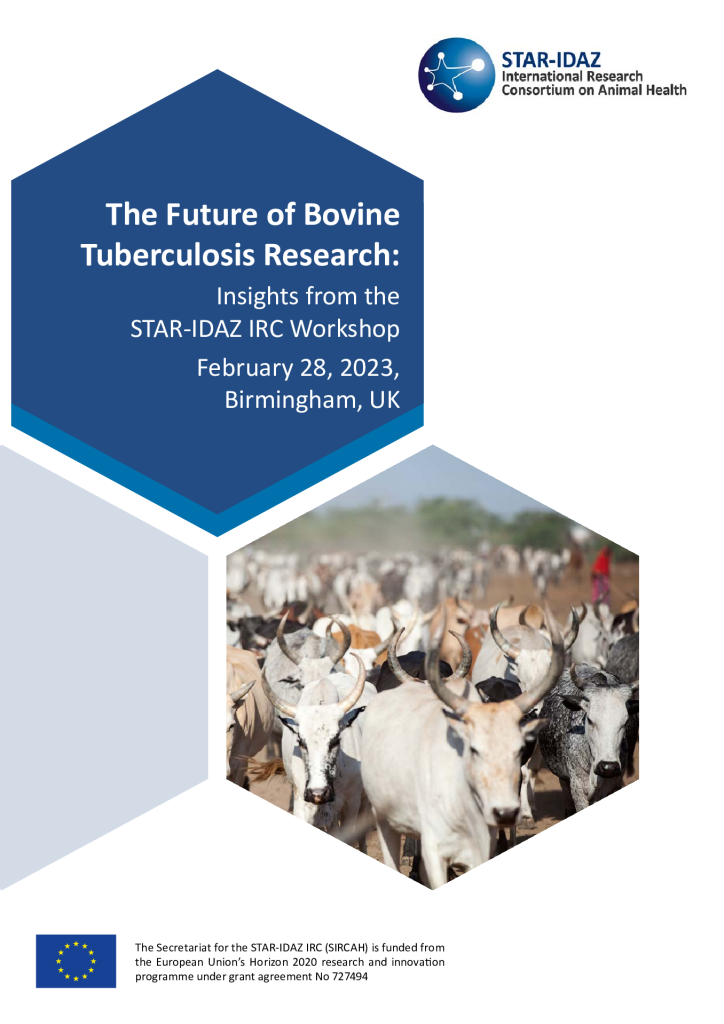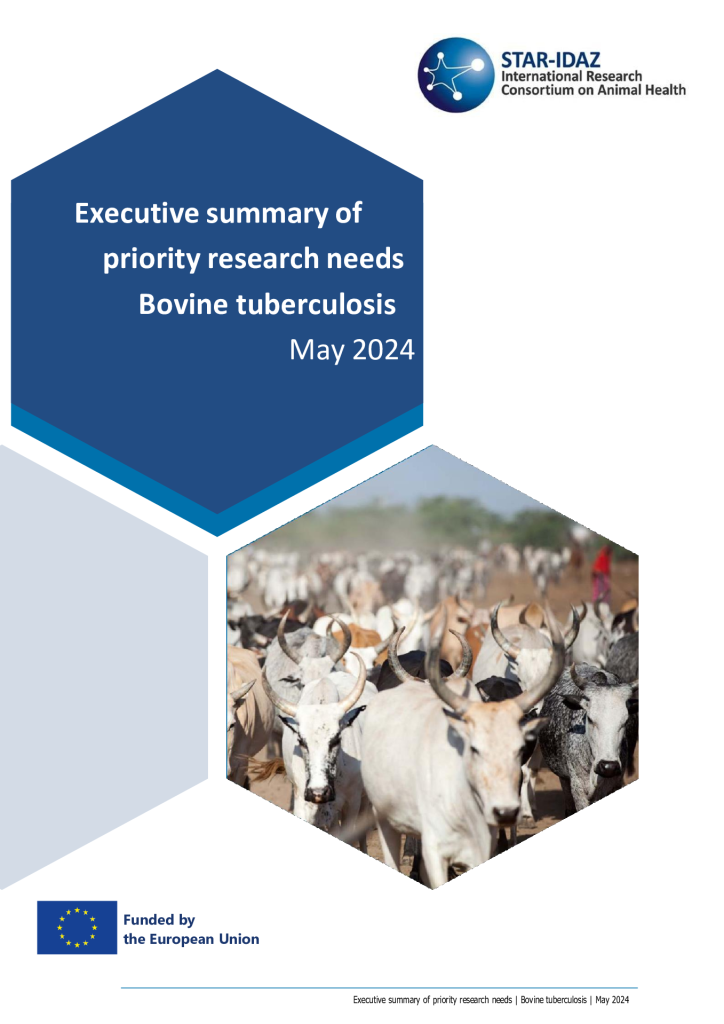STAR IDAZ Approach
Bovine Tuberculosis (bTB) is a persistent and economically significant disease impacting cattle globally. To tackle this challenge, the STAR IDAZ IRC has developed three comprehensive roadmaps focusing on diagnostics, vaccines, and control strategies. These roadmaps were crafted with input from bTB experts worldwide, who collaborated to pinpoint critical research gaps and innovation needs. Designed for global relevance, the roadmaps are strategically aligned to drive progress in the fight against bTB.
Information
- WOAH Bovine Tuberculosis
- DISCONTOOLS - Bovine Tuberculosis
-
TBhub
The home of UK TB information
Working group
GrabTB is no longer active
The Global Research Alliance for Bovine Tuberculosis (GRAbTB), which is no longer active, was started under the STAR IDAZ IRC project, to facilitate research cooperation and technical exchange on bovine tuberculosis (bTB). GRAbTB had 15 partners from Asia, Australasia, the Americas and Europe. The Strategic Goal of GRAbTB was to: identify research opportunities and facilitate collaborations within the Alliance; conduct strategic and multi-disciplinary research to better understand bovine TB; develop new and improved tools to control bovine TB; serve as a communication and technology sharing gateway for the global bovine TB research community and stakeholders; and promote collaboration with the human TB research community.
Key People
Vivek Kapur ,
Penn State University United States

James Wood ,
University of Cambridge United Kingdom

Robin Skuce,
Agri-Food and Biosciences Institute (AFBI) United Kingdom

Adrian Allen,
Agri-Food and Biosciences Institute (AFBI) United Kingdom

Tom Ford,
Agri-Food and Biosciences Institute (AFBI) United Kingdom
Nathalie Winter,
Animal Health Division France
Reports
Reports and outcomes from meetings and workshops
Research roadmaps and gap analyses
Gap analysis summary
Three STAR‑ IDAZ roadmaps highlight urgent needs for: (1) accurate diagnostics, particularly DIVA tests; (2) effective vaccines capable of differentiating between infection and vaccination; and (3) integrated control measures across herd, regional, and national levels. These priorities were refined through a Birmingham, UK workshop in February 2023, and summarized in the Executive Summary of Research Gaps.
Projects
Displaying 4 of 23 projects
VIEW ALL PROJECTSCan Bulk Milk Revolutionise TB Testing?
Planned Completion date 01/03/2025
 United Kingdom
United Kingdom
22-ICRAD Call 2 – Improving the diagnosis of tuberculosis in domestic ruminants through the use of new antigens and test platforms
Planned Completion date 01/03/2026
 United Kingdom
United Kingdom
The use of microRNA expression profiling in the detection and prediction of Bovine Tuberculosis
Planned Completion date 01/01/2025
 United Kingdom
United Kingdom





